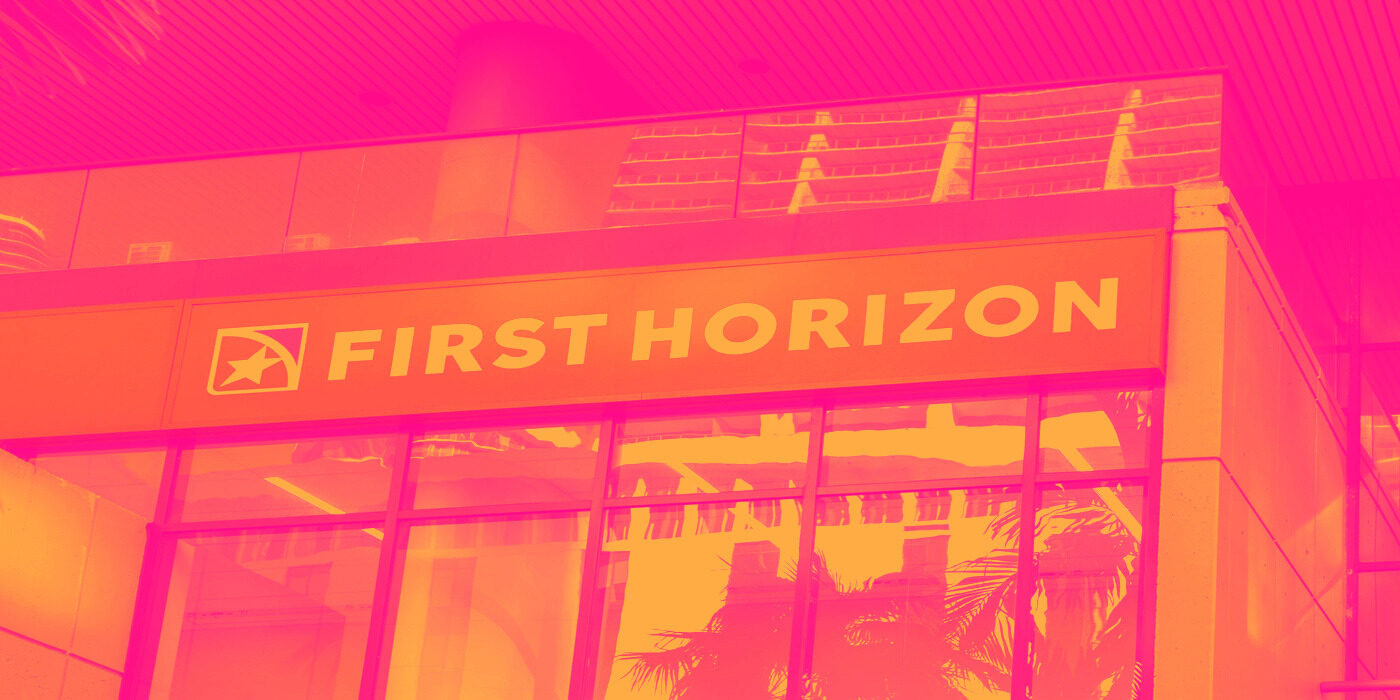
What Happened?
Shares of regional banking company First Horizon (NYSE: FHN) fell 11.7% in the afternoon session after the company reporting third-quarter results that failed to impress Wall Street.
The company posted adjusted earnings of $0.51 per share, beating the consensus estimate of $0.45. Revenue also topped forecasts, coming in at $889 million against an expected $841.9 million, driven by a 7.5% year-on-year increase in net interest income. However, the positive results were overshadowed by concerns about rising costs. First Horizon's efficiency ratio, a key measure of a bank's profitability that shows how much it costs to generate a dollar of revenue, came in at 61.9%, missing analysts' estimates of 59.3%. The sharp drop in the share price suggests that investors weighed these expense concerns more heavily than the strong headline numbers.
The stock market overreacts to news, and big price drops can present good opportunities to buy high-quality stocks. Is now the time to buy First Horizon? Access our full analysis report here.
What Is The Market Telling Us
First Horizon’s shares are not very volatile and have only had 6 moves greater than 5% over the last year. Moves this big are rare for First Horizon and indicate this news significantly impacted the market’s perception of the business.
The previous big move we wrote about was about 23 hours ago when the stock gained 3.5% as the earnings season got off to a strong start as several big banks reported third-quarter results that surpassed Wall Street's expectations.
The positive results were driven by a rebound in investment banking and strong trading desk performance. JPMorgan Chase reported a significant jump in profit and revenue, boosted by increased trading and dealmaking. Similarly, Wells Fargo saw its shares climb after reporting strong net interest income and raising its guidance. Citigroup also exceeded revenue estimates across all its business lines. While Goldman Sachs also beat expectations, its shares dipped slightly on news of potential job cuts aimed at curbing costs.
Overall, the strong reports from these financial giants suggest a healthy pickup in corporate activity and trading. Also, Fed Chair Jerome Powell gave investors a major reason for optimism by suggesting the Fed could soon stop its quantitative tightening (QT) program. For months, this policy acted like a brake on the economy, systematically draining cash from the financial system to cool inflation. Powell's comments signal that the Fed may be ready to ease its pressure, which would leave more liquidity in the market to flow into assets like stocks.
First Horizon is up 2.7% since the beginning of the year, but at $20.55 per share, it is still trading 12.3% below its 52-week high of $23.43 from October 2025. Investors who bought $1,000 worth of First Horizon’s shares 5 years ago would now be looking at an investment worth $1,942.
Today’s young investors won’t have read the timeless lessons in Gorilla Game: Picking Winners In High Technology because it was written more than 20 years ago when Microsoft and Apple were first establishing their supremacy. But if we apply the same principles, then enterprise software stocks leveraging their own generative AI capabilities may well be the Gorillas of the future. So, in that spirit, we are excited to present our Special Free Report on a profitable, fast-growing enterprise software stock that is already riding the automation wave and looking to catch the generative AI next.





